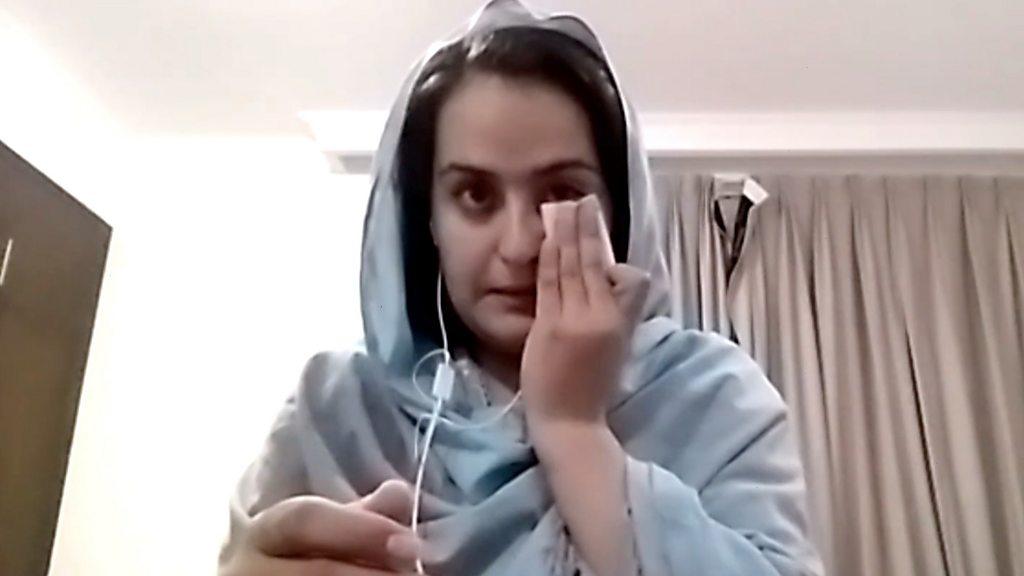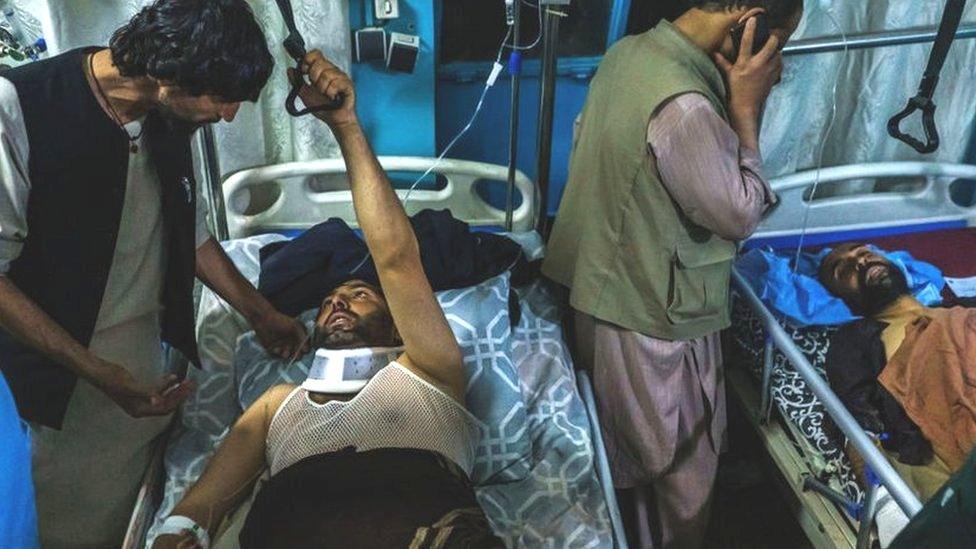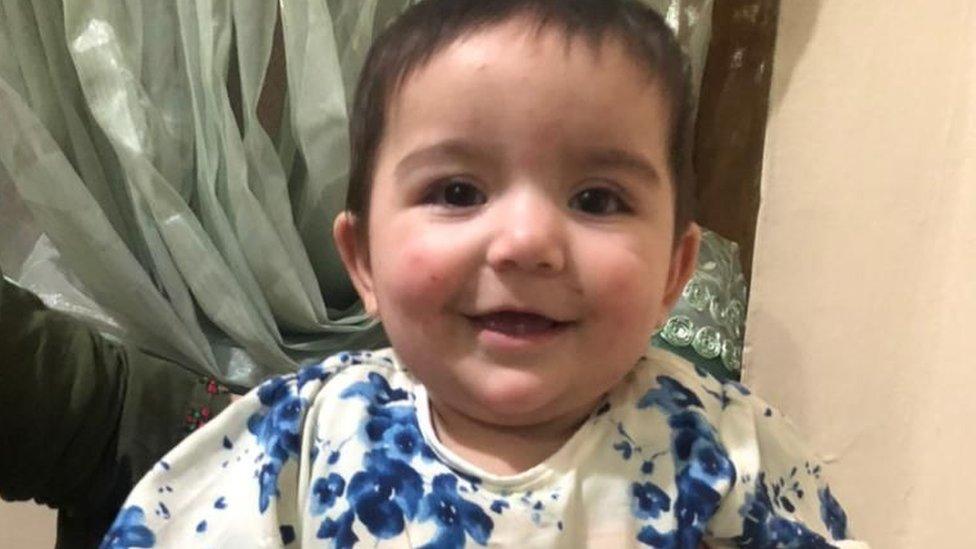Afghanistan crisis: Unclear if ruthless Taliban will change, says US general
- Published
Watch: Top US general admits 'anger and pain' over Afghanistan
The top US general has described the Taliban as a "ruthless group" and says it is unclear whether they will change.
Gen Mark Milley said, however, it was "possible" that the US would co-ordinate with the Islamist militants on future counter-terrorism operations.
US forces withdrew from Afghanistan on Tuesday, ending America's longest war 20 years after launching an invasion to oust the Taliban.
The Islamists are now in control and expected to announce a new government.
Gen Milley was speaking alongside US Defence Secretary Lloyd Austin, in their first public remarks since the last troops left Afghanistan.
US President Joe Biden has been widely criticised over the abrupt manner of the withdrawal, which led to the unexpected collapse of the Afghan security forces the US had trained and funded for years.
The Taliban's lightning advance sparked off a frenetic effort to evacuate thousands of foreign nationals and local Afghans who had been working for them.
In the news conference on Wednesday, both Gen Milley and Secretary Austin praised the troops who had served in Afghanistan and the massive evacuation mission.
Asked about their co-ordination with the Taliban in getting evacuees to the airport, Mr Austin said: "We were working with the Taliban on a very narrow set of issues, and that was just that - to get as many people out as we possibly could."
"In war you do what you must in order to reduce risk to mission and force, not what you necessarily want to do," Gen Milley added.
He said it was possible that the US would co-ordinate with the Taliban on future action against Islamic State affiliate IS-K, the group which claimed an attack outside Kabul airport last week that killed as many as 170 people, including 13 US service personnel.
IS-K is the most extreme and violent of all the jihadist militant groups in Afghanistan. It has major differences with the Taliban, accusing them of abandoning jihad and the battlefield.
Mr Austin, meanwhile, said he would "not want to make any predictions" on future co-operation. But he added that officials would "do everything that we can to make sure we remain focused on [IS-K], understand that network, and at the time of our choosing in the future, hold them accountable for what they've done".
In total, the evacuation operation saw more than 123,000 people wishing to flee the Taliban airlifted out of the country.
The US estimates that there are between 100 and 200 Americans still in Afghanistan.
US Under-Secretary of State for Political Affairs Victoria Nuland said "all possible options" were being looked at to get remaining US citizens and people who had worked with the US out of the country.
Meanwhile, UK Foreign Secretary Dominic Raab said he was not certain how many UK nationals remained in the country, but that it was believed to be in the "low hundreds".
The Taliban have celebrated the final withdrawal of foreign forces, and are now focusing on forming a government.
The deputy head of the Taliban's political office in Qatar, Sher Abbas Stanekza, told BBC Pashto that a new government could be announced in the next two days.
The Taliban are asked if there will be a place for women in its new government
He said there would be a role for women at lower levels but not in top positions.
He also said that those who served in government in the past two decades would not be included.


This magical word "inclusive" is being used by Afghanistan's neighbours to try to put pressure on the Taliban to share some of the power so they don't have absolute control.
But look at it in pure political terms. The Taliban have come to power much more quickly than even they expected. And they feel they have an overwhelming mandate to pursue their overriding objective to establish an Islamic system.
In this new emerging Islamic emirate, women will be playing secondary roles to men.
This is already very different from what we heard even two years ago, when the Taliban started discussing with representatives of the Afghan government and civil society. They said then that women could have any roles in our new Islamic government except the president or prime minister. They could be ministers or CEOs.
Now they seem to be rolling back from that because what happened in the past is now history. It's a new day for them and it's a day when the Taliban are in charge.

- Published31 August 2021

- Published11 October 2021

- Published1 September 2021
